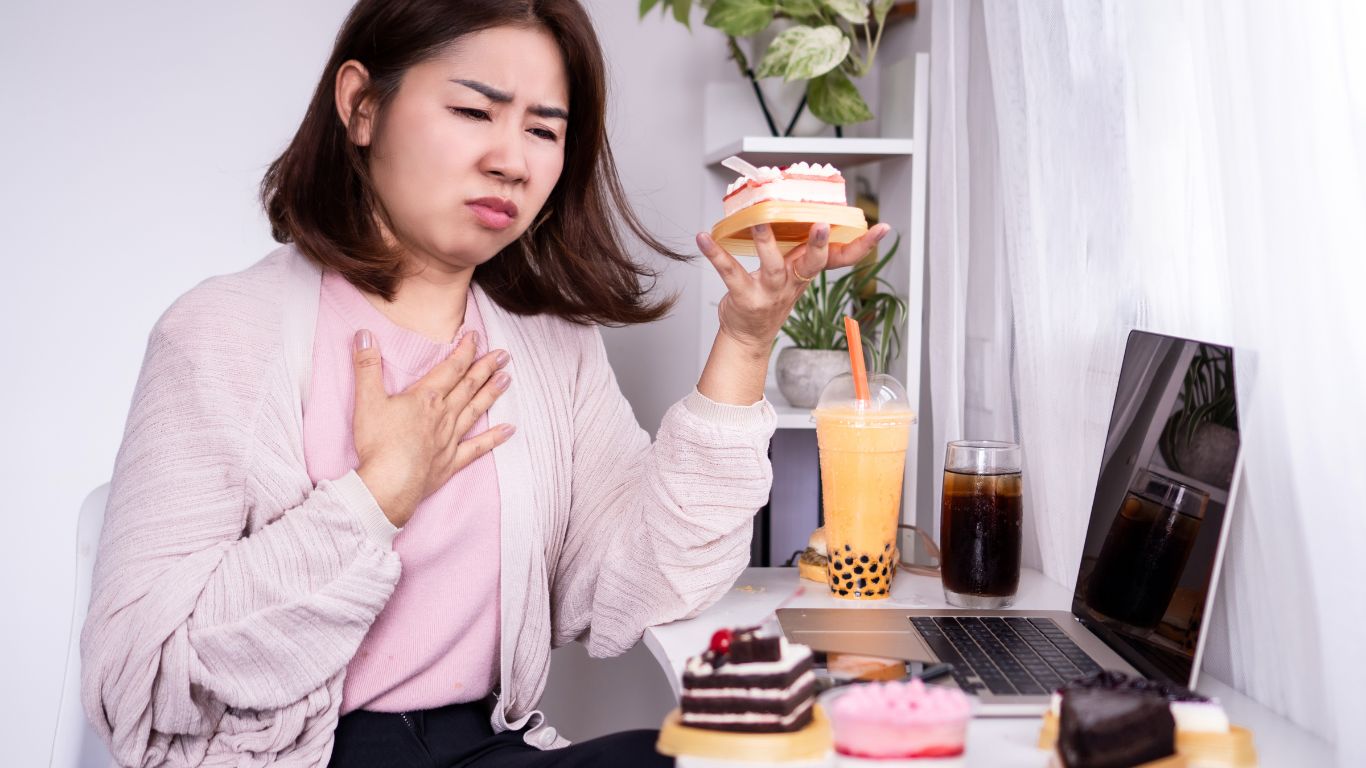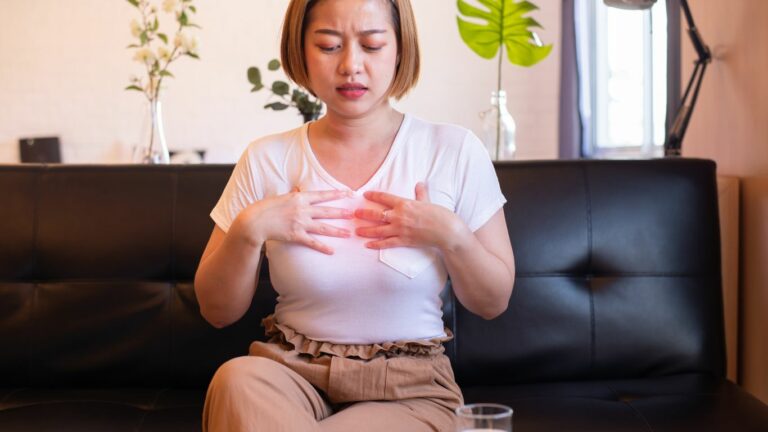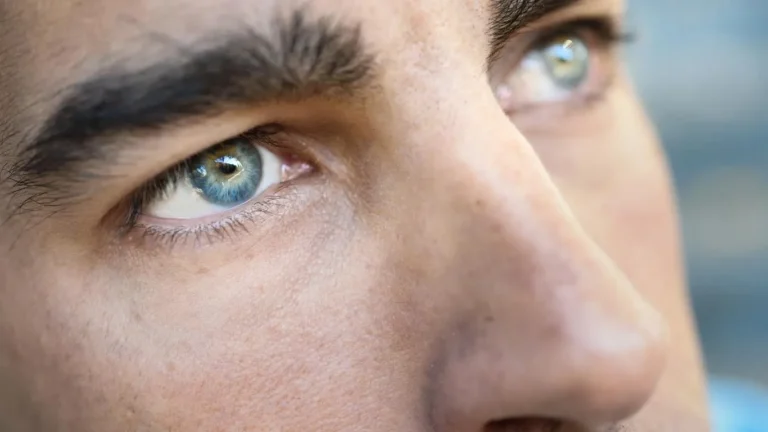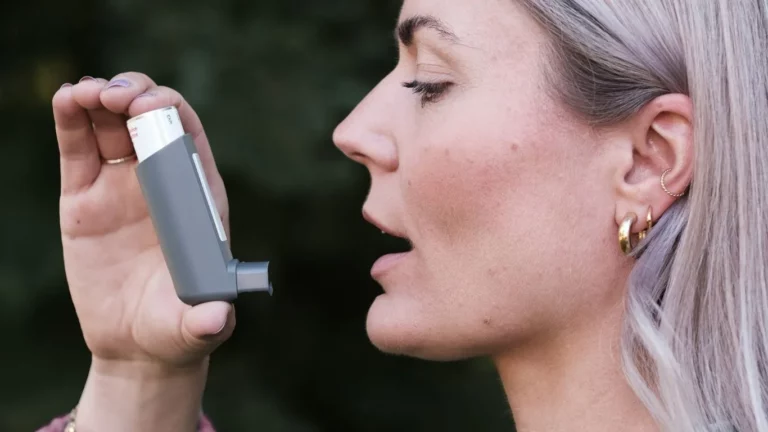How GERD After Drinking Coffee Can Wreck Your Gut Health
If you’ve ever found yourself reaching for that steaming cup of coffee in the morning only to later clutch your chest or throat in discomfort, you’re definitely not alone. As someone who’s spent years working closely with patients in a Gastroenterology Clinic, I’ve seen firsthand how common complaints about GERD after drinking coffee really are. And trust me, it’s not just you — even a few coworkers and I have felt that nasty burn creep up after a strong brew. So today, let’s dive into what’s really going on, and what you can do about it, without giving up your favorite coffee ritual entirely.
Why Does Coffee Trigger GERD? 
Coffee might be the superhero that gets our day started, but for those dealing with GERD, it often plays the villain. Based on my experience in gastroenterology, here’s what’s happening behind the scenes.
The Lower Esophageal Sphincter (LES) Relaxation
Normally, your lower esophageal sphincter (LES) acts like a bouncer, keeping stomach acid right where it belongs. But coffee, especially that rich dark roast we love, can cause the LES to relax. When that happens, acid sneaks up into the esophagus, causing that familiar burning sensation we know all too well.
Acid Production Overdrive
Coffee naturally stimulates the stomach to produce more acid. For most people, that’s no big deal. But if you’re sensitive or prone to GERD symptoms, it can be like throwing gasoline on a fire. I remember countless patient charts where “coffee” was practically underlined three times during dietary discussions about acid reflux triggers.
Common Symptoms of GERD After Drinking Coffee 
After your morning cup (or third cup—no judgment here!), you might notice a range of symptoms. And yes, they can vary from day to day. Here’s what many people, including myself during my more coffee-obsessed days, have experienced:
- Heartburn: That burning feeling creeping up your chest or throat.
- Regurgitation: That gross sour taste when acid washes back up.
- Chest Pain: Sometimes it can be so sharp it mimics heart attack symptoms (always get chest pain checked by a doctor just in case!).
- Chronic Cough: A persistent cough, especially after meals or coffee.
- Hoarseness: Waking up sounding like you partied too hard, even if you just had a latte.
Is All Coffee Created Equal When It Comes to GERD? 
Here’s the kicker — not all coffee affects everyone the same way. Working at the GI clinic, I picked up on some pretty fascinating patterns among patients. Turns out, the type of coffee matters a lot more than you might think!
Factors That Make a Difference
- Roast Level: Dark roasts often have less acid than light roasts, even though people think they’re “stronger.”
- Brewing Method: Cold brew is often less acidic than hot brew methods, making it a better option for GERD-prone coffee lovers.
- Quality and Type of Beans: Low-acid beans (like those grown in Sumatra or Guatemala) can be gentler on your stomach.
- Additives: Milk, sugar, flavorings — all can change how your body reacts, sometimes for the worse.
My Personal Trial and Error Journey
True story: after way too many uncomfortable mornings, I switched to a cold brew made with low-acid beans. And honestly? Life-changing. Patients I worked with had similar success stories after experimenting a little. Sometimes, the fix isn’t giving up coffee completely — it’s just changing the game plan a bit!
How to Still Enjoy Coffee Without Suffering GERD Symptoms
Just because coffee can cause problems doesn’t mean you have to quit it cold turkey. Trust me, after working in healthcare, I know how crucial small lifestyle tweaks can be. Here are some practical tips that I often recommended to patients — and even use myself:
- Switch to low-acid coffee: Look for “low acid” on the label.
- Opt for smaller servings: Less coffee = less acid production.
- Time it right: Try drinking coffee mid-morning instead of on an empty stomach right after you wake up.
- Experiment with milk alternatives: Some find that plant-based milks are easier on the stomach.
- Stay upright: Avoid lying down for at least 2-3 hours after drinking coffee.
Foods That Make GERD After Drinking Coffee Even Worse 
Now, here’s something a lot of my patients found surprising — sometimes it’s not just the coffee that’s the problem. It’s what you eat with it. Crazy, right? I remember one sweet patient who always paired her morning coffee with a buttery croissant. Delicious? Absolutely. GERD-friendly? Not so much.
Top Offenders That Intensify Symptoms
Pairing coffee with certain foods can be a recipe for disaster if you’re already struggling with acid reflux. Here’s a quick list of foods I often flagged for patients:
- High-fat foods: Pastries, donuts, bacon — basically brunch favorites.
- Chocolate: Contains caffeine and can relax the LES even further.
- Citrus fruits: Oranges and grapefruits add even more acid to your system.
- Tomato-based dishes: Tomato sauces or even ketchup are notorious for triggering heartburn.
- Spicy foods: Hot sauce lovers, beware! It can set off reflux fast.
Trust me, I’ve seen firsthand how simple swaps — like switching out that croissant for a slice of whole-grain toast — made a world of difference for many patients (and for my own cranky stomach, too).
Natural Remedies to Ease GERD After Drinking Coffee 
If giving up coffee isn’t on your vision board (I get it — same here!), there are some natural tricks you can try to calm the storm without reaching for a prescription bottle right away.
Simple Lifestyle Tweaks
- Chew gum after coffee: It might sound weird, but chewing gum boosts saliva production, which can help neutralize stomach acid naturally.
- Drink water after coffee: A glass of water can help wash acid back into the stomach where it belongs.
- Eat a small snack: A banana or a handful of almonds can sometimes help buffer the acid.
- Adjust your posture: Sitting up straight or even going for a light walk after your coffee can help prevent acid from sneaking up.
I personally started keeping a stash of sugar-free gum in my scrubs pocket while working in the clinic. Patients thought it was funny, but after sipping coffee during a crazy morning shift, that gum saved me from so much discomfort!
When to See a Doctor for GERD Symptoms 
As much as we like to DIY our health sometimes (guilty!), there are definitely moments when professional help is the best move. Over my years in gastroenterology, I saw way too many people tough it out way longer than they should have. And it’s not always “just heartburn.”
Warning Signs You Shouldn’t Ignore
- Persistent chest pain: Especially if it feels different from typical heartburn.
- Difficulty swallowing: A sign that the esophagus could be narrowing.
- Unexplained weight loss: Could be a clue that something more serious is going on.
- Frequent regurgitation: More than just occasional acid reflux.
- Severe coughing or hoarseness: Especially if it’s not tied to a cold.
If any of these pop up, don’t hesitate — call your gastroenterologist. Trust me, early treatment can save you from much bigger problems down the line. I’ve seen patients totally turn their symptoms around once they got the right care plan in place.
Expert Tips From Gastroenterologists on Managing GERD and Coffee
During my time at the clinic, I had the privilege of working with some of the best GI specialists around. (Seriously, I learned more from shadowing those docs than from any textbook.) Here are some golden nuggets they often shared with patients:
Pro Tips to Keep Coffee and GERD in Check
- Keep a food diary: Track what you eat, drink, and feel afterward. Patterns jump out faster than you’d think!
- Space meals and coffee: Avoid drinking coffee immediately after a heavy meal.
- Lose a little weight if needed: Even 5-10 pounds can ease pressure on the stomach.
- Raise the head of your bed: Gravity can be your best friend in fighting nighttime reflux.
- Use medications cautiously: Only use antacids, H2 blockers, or PPIs as directed by your doctor.
One of our GI specialists even joked that coffee isn’t evil — it’s just “misunderstood” for people with sensitive stomachs. And honestly? That stuck with me. It’s all about finding the balance that lets you enjoy your morning brew without wrecking your day.
Long-Term Impact of GERD After Drinking Coffee 
Let’s be real — a little heartburn here and there might not seem like a big deal. I used to think the same thing, especially during those busy clinic days when lunch was just a latte and half a protein bar. But over time, frequent GERD symptoms, especially after drinking coffee, can lead to bigger issues that aren’t so easy to brush off.
What Can Happen If It’s Left Untreated?
I’ve seen patients who ignored their reflux for years. Some figured it was just “normal” or blamed it on stress or spicy food. But eventually, they’d show up with symptoms that were hard to ignore — and the tests didn’t always bring good news.
- Esophagitis: Constant acid exposure can inflame and damage the esophagus lining.
- Barrett’s Esophagus: A more serious condition that can increase the risk of esophageal cancer.
- Ulcers or strictures: Ulcers can form, and in some cases, scarring narrows the esophagus, making swallowing difficult.
- Chronic cough and asthma flare-ups: GERD isn’t just about the stomach — it can affect your lungs, too.
This isn’t meant to scare anyone — just to highlight the importance of paying attention to those daily symptoms. Catching GERD early means you can still enjoy your coffee while protecting your health long-term.
Creating a GERD-Friendly Coffee Routine 
Here’s some good news: with a little creativity and consistency, you really can build a morning (or afternoon!) coffee routine that works with your body instead of against it. I’ve worked with dozens of patients on this — and tried plenty of strategies myself — so you don’t have to learn the hard way.
Morning Game Plan for Coffee Lovers With GERD
- Start with a small meal: Toast with almond butter or oatmeal gives your stomach something to work with before coffee hits it solo.
- Choose low-acid coffee beans: Brands often label these clearly, and they really do make a difference in how your gut reacts.
- Try a milk base: Adding a splash of oat or almond milk can mellow out the acidity.
- Use a slow-drip or cold brew method: These brewing styles tend to yield lower acid content than French press or espresso.
- Set a time limit: Avoid sipping coffee for hours. It’s tempting, but prolonged exposure can keep the LES relaxed longer.
On weekdays, I usually make a cold brew with low-acid beans and pour it over oat milk. It’s my little ritual, and my gut has totally thanked me. I’ve even shared this exact combo with a few patients — and they came back asking where to buy the beans!
Supplements and Medications: What Helps and What to Avoid
Sometimes, even with all the right tweaks, GERD symptoms still creep in. At that point, supplements or meds might need to step in — but always smartly and with guidance. I used to assist with medication reviews in the clinic, and you’d be amazed how many people were unknowingly taking supplements that worsened their reflux.
Helpful Options to Talk to Your Doctor About
- Antacids: Fast-acting relief for occasional flare-ups. (TUMS and the like — but don’t overdo it!)
- H2 blockers: Like ranitidine or famotidine — longer relief, but not as fast as antacids.
- Proton Pump Inhibitors (PPIs): Omeprazole, lansoprazole, etc. — effective but should be used under medical supervision.
- DGL (deglycyrrhizinated licorice): A natural option some folks swear by for soothing the digestive tract.
Supplements That Might Worsen GERD
- Iron supplements: Often tough on the stomach lining and can cause heartburn.
- Calcium carbonate: Found in some antacids but can trigger rebound acid production if overused.
- Vitamin C (ascorbic acid): In high doses, it’s harsh on the stomach.
Always check with a healthcare provider (preferably someone familiar with your full history) before starting or stopping anything. And if you’ve got a supplement habit like I do, be sure to read the labels closely — or bring them to your next appointment.
Final Thoughts on Living With GERD as a Coffee Lover
If there’s one thing I’ve learned through both personal experience and working hands-on with gastro patients, it’s this: you don’t have to give up the things you love to feel better — you just have to be a little smarter about how you enjoy them. Coffee doesn’t have to be the enemy. It just might need a few ground rules (pun totally intended).
Give your body a chance to communicate. If something feels off, listen. If symptoms keep coming back, don’t brush them off or normalize the discomfort. There are tons of tools, tips, and lifestyle tweaks that can help — and you’re definitely not in this alone.
Helpful References
Disclaimer
This article is intended for informational purposes only and does not constitute medical advice. Always consult with a qualified healthcare provider before making any changes to your diet, medications, or health routine — especially if you have a chronic condition like GERD.

Camellia Wulansari is a dedicated Medical Assistant at a local clinic and a passionate health writer at Healthusias.com. With years of hands-on experience in patient care and a deep interest in preventive medicine, she bridges the gap between clinical knowledge and accessible health information. Camellia specializes in writing about digestive health, chronic conditions like GERD and hypertension, respiratory issues, and autoimmune diseases, aiming to empower readers with practical, easy-to-understand insights. When she’s not assisting patients or writing, you’ll find her enjoying quiet mornings with coffee and a medical journal in hand—or jamming to her favorite metal band, Lamb of God.














